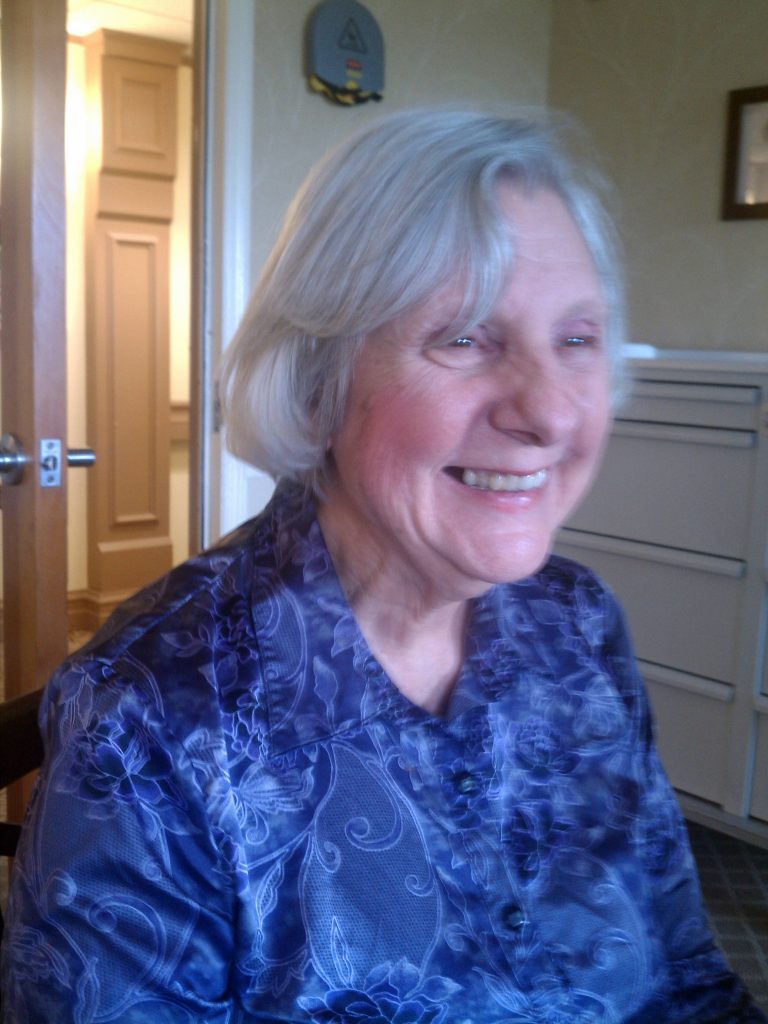Over the years and through the stages, to keeping a loved one calm we go. This was a challenge that I faced with my mother right from the start. As I recall, my father’s approach was to hug her constantly and agree with her. I always had a hard time agreeing with my mother. Even after I understood that she was struggling with the very early stages of Alzheimer’s, I couldn’t moderate my opinions. It drove her crazy and caused her to scream and cry and lash out at me a lot. I was just being the daughter I had always been with her. But our relationship was suddenly strained and we were both on a short fuse. I didn’t understand Alzheimer’s volatility.
During one visit, I tried to help my father with my mother’s decreasing abilities with grooming. She had developed phobias about water, which is apparently quite common with Alzheimer’s patients, and didn’t want to shower or wash her hair.
Harsh reaction to a haircut
Mom was not getting regular haircuts anymore so her hair was long and greasy and stringy. I decided it was time for a haircut and good washing so I told her we were going for a haircut. She just screamed at me that she didn’t want a haircut. It never occurred to me that she wouldn’t want a haircut. I just thought dad didn’t want to take her to the salon. It got pretty ugly with her screaming and crying and stomping around the house. She actually screamed at me that I should go home and she never wanted to see me again. Wow! That was a pretty harsh reaction to a haircut!
I tried a new approach
With my father’s help, I let it go and calmed down. We certainly didn’t need me crying and upset. The next day I decided to try a different approach because I was determined that she was going to have a haircut. She looked like a homeless woman. After breakfast, I went up to her and said it was really nice to be on vacation in Florida and that I was hoping that she would go with me for a spa day. I hugged her and asked her if she would pretty please go with me. It would be my treat. We could get our nails done with pretty red polish and have our hair done. What do you know? It worked! I felt so deceitful though and manipulative. But I was starting to learn a valuable lesson.
I was appealing to something my mother wanted. She wanted to be pretty. I imagine she wanted her husband to notice. She liked his compliments so always dressed well and wore her signature bright red lipstick. So off we went to a salon where I took them aside and explained the situation. We were assigned a very nice stylist who really connected with my mother and made her feel safe and good. I made sure that I remained in her line of sight at all times while I had my nails done. It all worked. She emerged looking beautiful and feeling good about herself. It was a happy day all around and dad was generous with his compliments.

A lesson in Alzheimer’s volatility
I learned a lot with that episode and I’ve carried the lesson with me through the years. I’ve needed to consider that my mother had diminished abilities to moderate her behaviors and her responses to me. She was experiencing Alzheimer’s volatility plus she hated to be bossed. I know where I get it now. I realized that I had to step into her world now. What did she need? She needed to feel safe and she needed to feel respected and loved. Maybe she felt like her life was getting away from her and she needed to feel some element of control. She still needed to make some of her own decisions and choices.
There is another important thing to remember about engaging with an Alzheimer’s patient. Generally as parts of the brain are diminished, the attention span is short and recent memory fails. This is why a dementia patient in an early stage repeats a question or comment over and over. That means that what happened 5 minutes ago is generally not retained. But if emotions are triggered, particularly negative ones, the person can feel those and react to those. On the upside, an Alzheimer’s patient soon forgets what was upsetting.
Holding back from sharing upsetting information
There were occasions when I elected not to tell my mother something because it would evoke an emotional reaction and I didn’t feel the need to upset her. After the emotional trigger she would never remember what I told her anyway. So I didn’t see any point in telling her things that would test the Alzheimer’s volatility. I encouraged my father to take this approach too.
Several years later I elected not to tell her that my father had passed away. That was a difficult decision and I’ve struggled with whether I did the right thing. I still believe I did. She would have cried but then forgotten. Why make her cry? I think she has regular conversations with him anyway.

Comments are closed, but trackbacks and pingbacks are open.